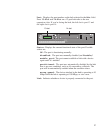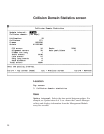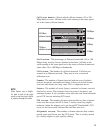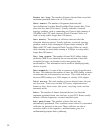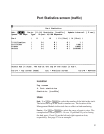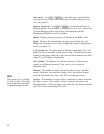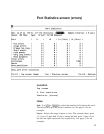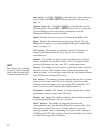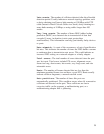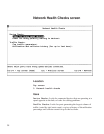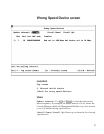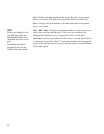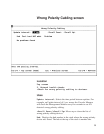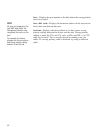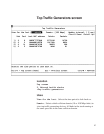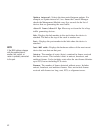35
Late events:
The number of collisions detected after the allowable
detection period. Usually indicates a network topology problem, such
as daisy-chaining two Express hubs running at 100 Mbps with UTP
cable (instead of Intel Cascade Cables in a stack), daisy-chaining too
many hubs running at 10 Mbps, or using cables longer than 100
meters.
Very long events:
The number of times MAU jabber lockup
protection (MJLP) was detected due to transmission of data that
exceeded 5 msec. in duration (octet count greater than
maxFramSize). This information can help you identify faulty devices
or ports.
Rate mismatch:
A count of the occurrences of out-of-specification
bit rates. This indicates the number of times the FIFO buffer overruns
or underruns due to transmission rate errors. This could indicate an
incorrect FIFO setting on a network adapter or a faulty adapter.
Total errors:
The total number of errors detected since the port
was last reset. Total errors include FCS errors, alignment errors,
frame too long, short events, late events, very long event, and rate
mismatch errors.
Runts:
The number of frames detected that are less than the
minimum permitted frame size and have a good FCS. Runts usually
indicate collision fragments, a normal network event.
Auto partitions:
The number of times this port was
automatically partitioned. This condition occurs when 64 consecutive
collisions are detected on the port. These collisions are due to
excessive traffic on the segment, a malfunctioning port, or a
malfunctioning adapter that is jabbering.



